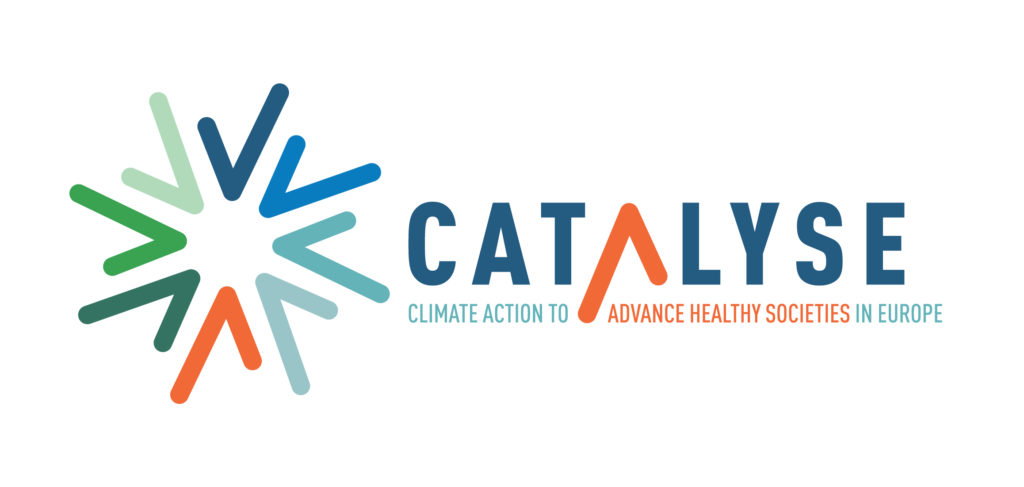CATALYSE (Climate Action To Advance HeaLthY Societies
in Europe) – EU-funded initiative coordinated by ISGlobal
focused on climate action to protect public health in Europe.
CATALYSE is a five-year project coordinated by the Barcelona Institute for Global Health (ISGlobal) funded by the European Commission through the Horizon Europe programme, with co-funding from UK Research and Innovation and the Swiss State Secretariat for Education, Research, and Innovation.
CATALYSE is a powerful, interdisciplinary consortium, consisting of 21 partners from 12 European countries, with a mission to further develop and communicate evidence of the health impacts of climate change and respond to the urgent need for solutions. CATALYSE is also part of the European cluster on climate change and health, along with five other projects on climate change funded by the Horizon Europe programme.
The overarching goal of CATALYSE is to provide new knowledge, data, and tools on:
- the relationships between changes in environmental hazards caused by climate change, ecosystems, and human health;
- the health co-benefits of climate action;
- the role of health evidence in decision making;
- the societal implications of climate change for health systems.
This will be achieved through five specific objectives:
- To develop an integrated indicator framework and repository to track the status of health-relevant outcomes of climate actions.
- To quantify the health co-benefits and full social and environmental costs and benefits resulting from mitigation measures outside of the health sector.
- To develop innovative surveillance and forecasting tools that facilitate effective response to environmental health hazards (e.g. heat stress, allergenic pollen) caused by climate change and the design, monitoring and evaluation of interventions to mitigate climate change.
- To investigate how stakeholders engage with evidence regarding the health impacts of climate change, and to develop strategies and tools to facilitate engagement.
- To provide evidence and training on the most effective strategies for climate change adaptation and mitigation for health systems, with specific focus on vulnerable populations including those
occupationally exposed to hazards induced by climate change. - HEAL collaborates as a partner on activities related to knowledge translation to catalyze transformative change through strategic stakeholder engagement, toward the uptake of scientific evidence on the health impacts of climate change into policy making.


